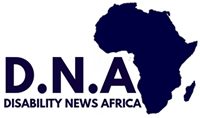 The Ghana National Association of the Deaf (GNAD) has called on the government to incorporate a national sign language (SL) policy in the educational curricula to make it compulsory for all students to study SL to ease the communication between the hearing impaired and other members of society.
The Ghana National Association of the Deaf (GNAD) has called on the government to incorporate a national sign language (SL) policy in the educational curricula to make it compulsory for all students to study SL to ease the communication between the hearing impaired and other members of society.
The study of SL at all levels of education, the association said, would address the issue of the exclusion and marginalisation of the deaf community in society.
This came to light at an advocacy programme for members of the GNAD in Accra, where a research on the implementation of SL services in public institutions in Ghana under the Persons With Disability Act 715 (2006) was presented by a public health expert.
The President of the GNAD, Mr Matthew Kubachua, said the study of SL in all schools would ensure that the deaf participate in and have access to socio-economic activities in the country.
“With sign language, the public can communicate with ease and with sign language-assisted service the deaf can do what they want easily,” he said.
Research
The research, which was funded by the BUSAC Fund, sampled the views of 40 officials of state institutions and members of GNAD to identify existing programmes and interventions that support the recruitment, training and placement of sign language interpreters in public institutions in Ghana and identify challenges faced by state and non-state actors in implementing the SL component of PWD Acts and the United Nations Convention on the Rights of Persons with Disabilities (UNCRPD).
The UNCRPD is an international human rights treaty of the United Nations intended to protect the rights and dignity of people with disabilities.
Among others the research also explored views from the deaf on challenges associated with accessing sign language services and examined the views of the deaf on how existing sign language services by the government supported them to explore existing business opportunities.
Individuals with hearing and speech impairment and public officials also shared their views on strategies that could be adopted to improve access to sign language interpretation.
Findings
A public health researcher at the Noguchi Memorial Institute for Medical Research, Dr Leonard Baatiema, said despite the existence of the Disability Act 715 for the past 13 years, the deaf continued to face challenges in work places, business and social environment.
“The absence of sign language interpreters or other hearing-assisted services undermine the ability of the deaf to fully and effectively participate in the social economic and cultural environment,” he said.
They, therefore, often experience differentiated treatment which infringes on their fundamental human rights, a situation which was at odds with what the international, regional and local conventions stipulate.
The barriers faced by the deaf, he said, affected their ability to engage in business activities or harness existing business opportunities.
He said it was also found that state institutions were unable to implement the component of the PWDs Act and UNCRPD as a result of lack of inadequate funding to engage sign language interpreters because of the high cost of accessing their service.
Recommendations
The research recommended the establishment of a formal structure for the training and development of sign language interpreters in hospitals, banks and other public institutions.
Additionally, it suggested the training on sign language for family and friends of deaf persons to improve communication.
It also called for the use of part of the Disability Fund to support sign language services while the Department of Social Welfare trained its officers as sign language interpreters to increase the number of interpreters.
It also recommended the creation of a database of all sign language interpreters for easy accessibility in addition to the institute of a mandatory policy for all television stations to employ sign interpreters for all programmes.
The government is also urged to consider providing hearing aids for those who need them to improve their enrolment in schools.
A sign language interpreter, Ms Georgina Tagoe, in an interview, said the services of sign language interpretation was not expensive as they charged GH¢200 per hour of services or GH¢600 when they were engaged for more than three hours in a day.
“This rate is negotiable if you engage a sign language interpreter for a day but if the services are needed over a longer period or for full employment basis then we can be paid according to our qualification,” she said.
She said the University of Education, Winneba, and the University of Cape Coast (UCC) started the training of certified sign language interpreters in 2018 and there were about 55 certified ASL interpreters who have been awarded with diploma certificates.
Source: graphic.com.gh






